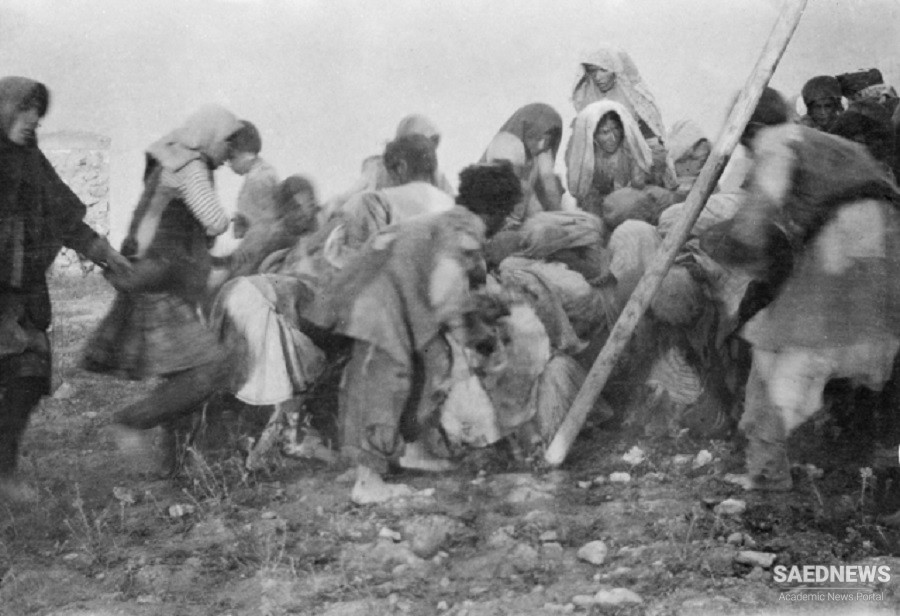By the close of the Great War, a famine ravaged Iran, claiming a vast number of lives. It was primarily a result of successive droughts, which in turn caused repeated crop failures and disruptions to the agricultural cycle. Excessive production of cash crops at the expense of foodstuffs also contributed to shortages, and a lack of efficient road and communication networks barred the transport of relief to remote towns and villages. Not since 1869–1871 had Iran experienced such widespread starvation, and in some instances towns and villages in the central provinces experienced massive depopulation. Along with Armenia, greater Syria and Greece, the Iranian plight drew Western public attention, especially in the United States, and encouraged charity collections and an organized relief operation.
The casualties from the famine were further exacerbated by an outbreak of cholera, endemic to the region, and the more deadly Spanish influenza pandemic of 1918–1919, whose virulent worldwide spread was facilitated by troop movements. Unlike in Europe and the United States, where the spread of influenza was partially checked by preventive measures, in Iran there was next to no prevention or even recognition of the disease known as “European common cold” (zokam-e farangi). The casualties from influenza are difficult to assess, but a conservative estimate of loss of life in Iran due to famine and disease exceeded one million. This was an enormous loss for a country with a total population of no more than nine million, that did not field a single soldier in the war, and was not allowed to bring its grievances to the table after the war.
Foreign occupation no doubt also intensified the Iranian famine. Large consignments of grain and foodstuffs were both purchased and confiscated by Russian and British armies for consumption by their troops. The starving population in the countryside had no choice but to move to towns and cites in search of food. The growing population in urban centers not only overwhelmed the miniscule relief operations but also increased the spread of disease. Some popular historians claim that the famine was a result of deliberate and sinister starvation policies of the British, but such claims are not substantiated.


 Dwarfed Sultans
Dwarfed Sultans














































